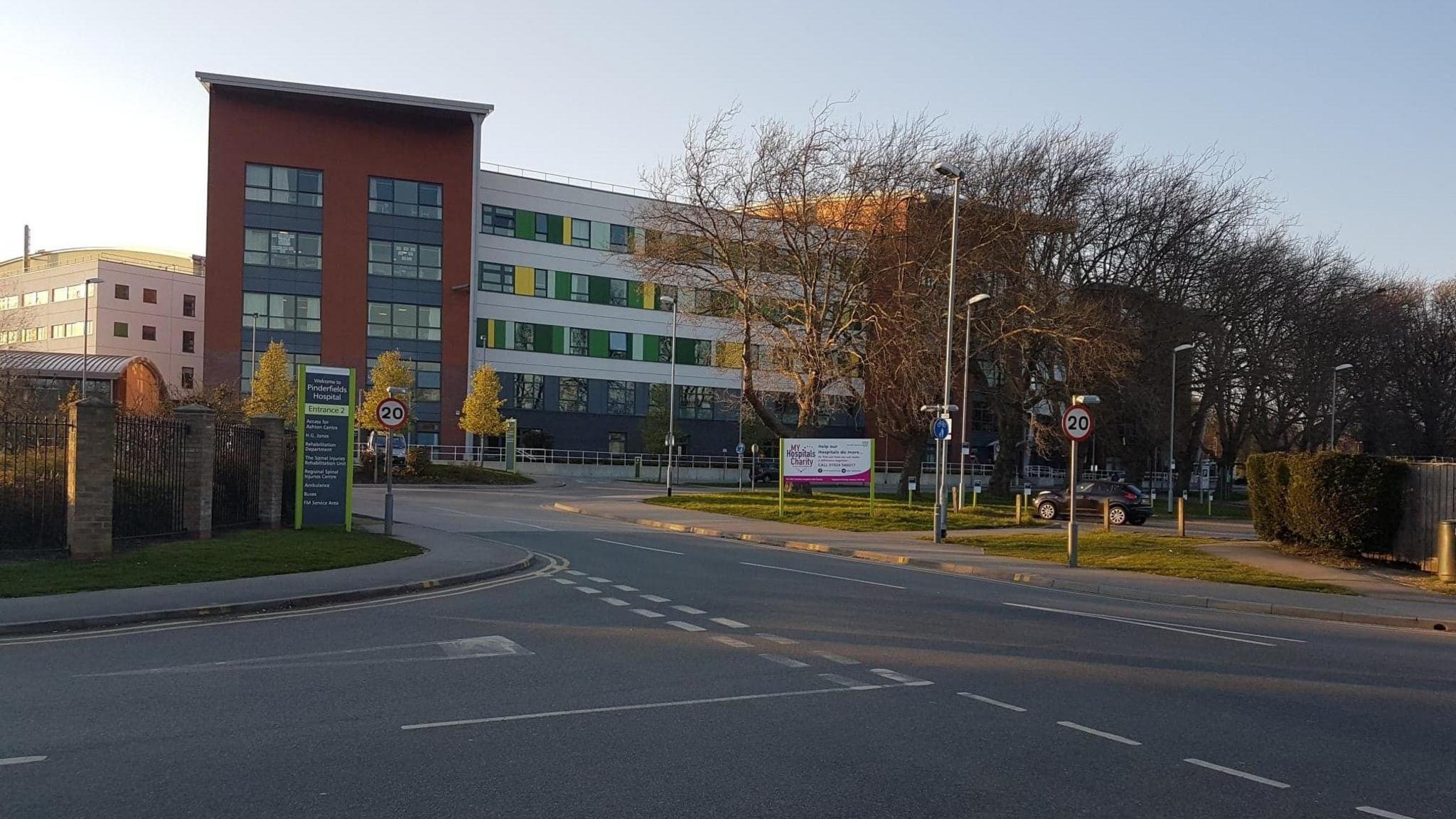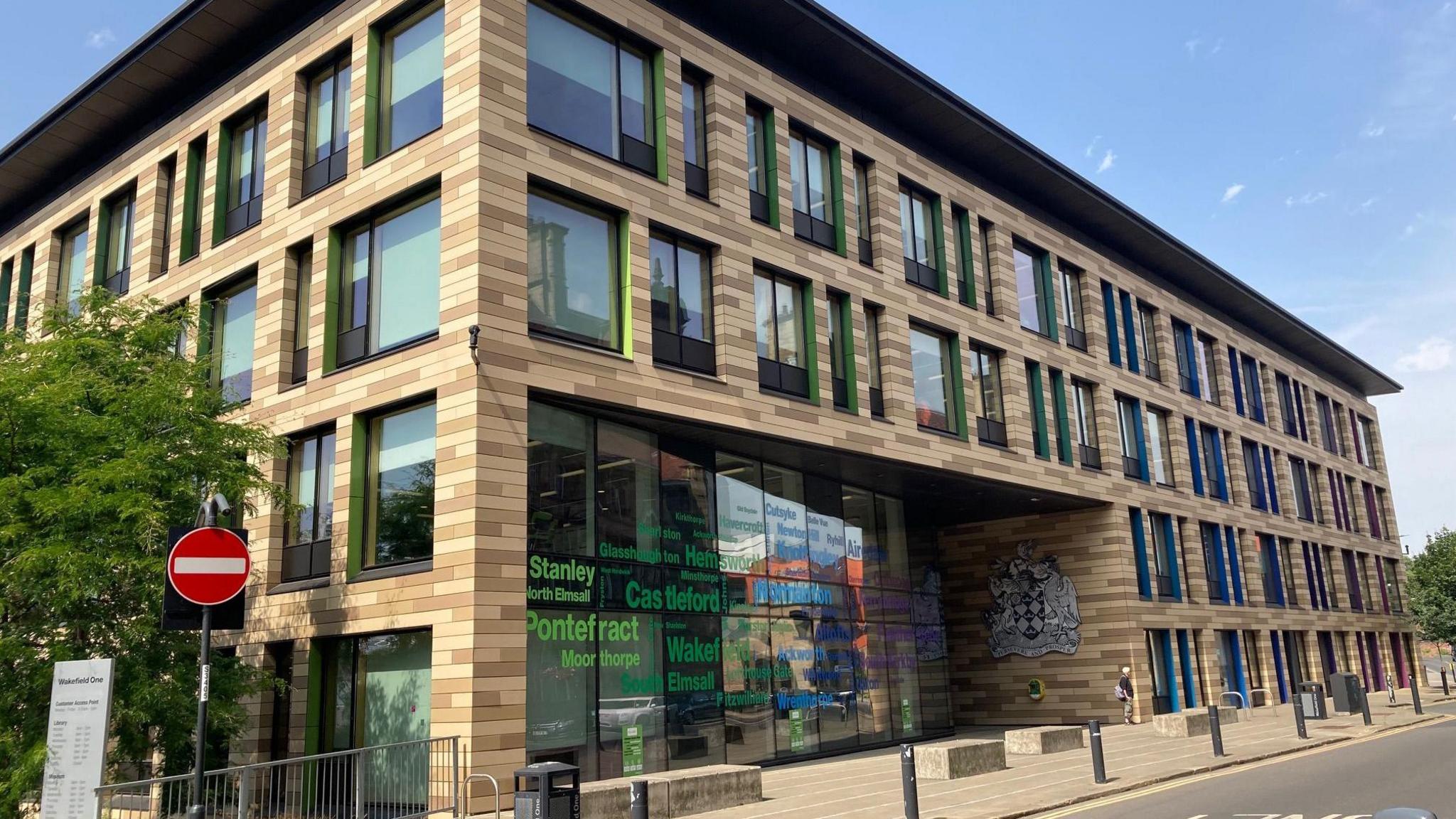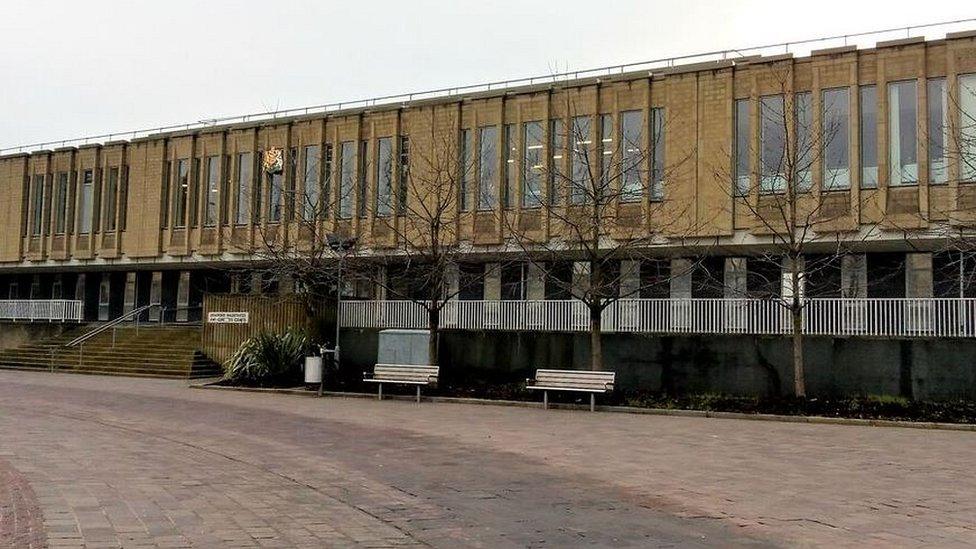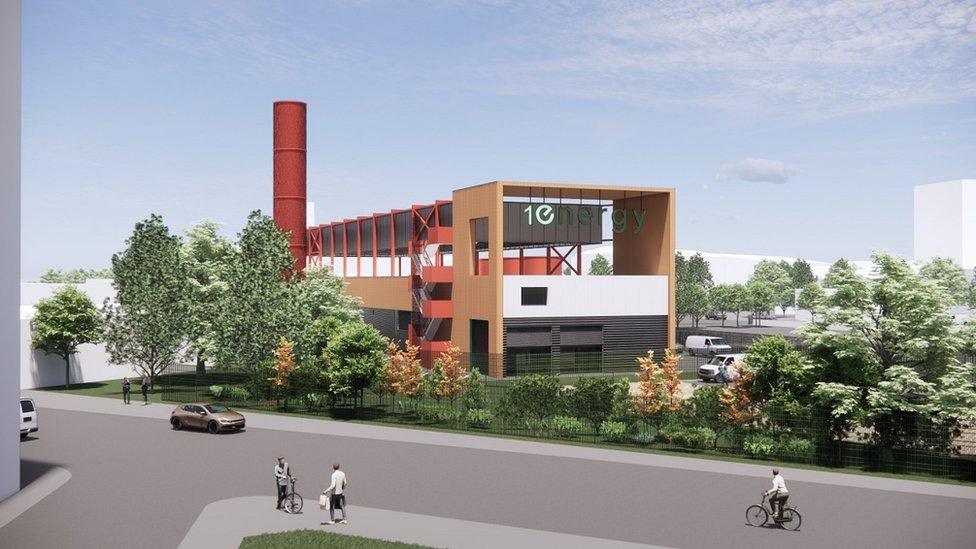Low-carbon heating system planned for city centre

Pinderfields Hospital is among the sites expected to benefit from the scheme
- Published
Funding has been secured to develop plans for a low-carbon heating network in Wakefield city centre.
The scheme would provide greener heating to public buildings including Wakefield Town Hall and Wakefield One.
Heat networks, also known as district heating systems, supply heat from a central source via a network of underground insulated pipes carrying hot water.
Wakefield Council confirmed it had been awarded more than £400,000 to carry out a feasibility study into the project.
The money comprises £289,000 to carry out the feasibility study and a further £130,000 to investigate setting up a similar network in Knottingley.
It is hoped Pinderfields and Fieldhead hospitals, Wakefield College and the city’s maximum security prison will also benefit from the scheme.
There are more than 14,000 heat networks in the UK, including some under development or already in place in Kirklees, Bradford and Leeds, according to the Local Democracy Reporting Service.
A council report said: “The Wakefield district heating scheme would bring affordable low/zero carbon heat to the city centre, reduce the long-term reliance on gas and heating and help residents in poverty.”

The council's headquarters could be among the buildings connected
Proposals include creating a 3 mile (6.5km) network to supply city centre buildings.
A second feasibility study has been carried out to identify sources of waste heat in the Knottingley area, particularly from the former power stations at Ferrybridge.
The report says, in theory, it could lead to 21,000 homes being supplied with heating.
Funding for the projects has been provided by the government’s Department for Energy Security and Net Zero and West Yorkshire Combined Authority.
The council agreed to accept the funding at a meeting earlier and the studies were expected to take around 12 months to complete.
Follow BBC Yorkshire on Facebook, external, X (formerly Twitter, external) and Instagram, external. Send your story ideas to yorkslincs.news@bbc.co.uk.
- Published2 April 2024

- Published18 September 2023
